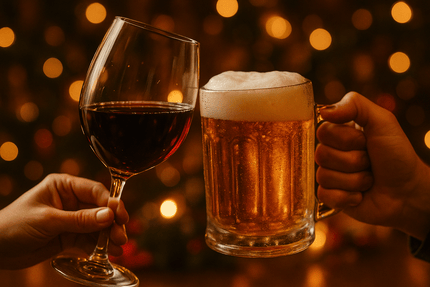Taxes included and shipping calculated at checkout.
Every year, enthusiasts and professionals alike await the release of new wine guides with curiosity—and sometimes anxiety. The stars, the glasses, the bunches of grapes, the scores out of 100: in just a few pages, the work of hundreds of producers is summarized, classified, and often celebrated. But how accurate are these guides? And how trustworthy is it?
There's no denying that guides have a tangible value: they offer a selection, create a common language, and help consumers navigate a broad and complex landscape. Those taking their first steps in the world of wine find guides a roadmap, a useful starting point for discovering quality labels and wineries.
Furthermore, many Italian guides rely on anonymous tastings, expert panels, and well-defined technical criteria. The work behind the scenes is often serious, rigorous, and passionate.
Wine, however, is not a standard product. It is the fruit of the land, the climate, the vintage, and the hands that produce it. More than a score, it's an experience. It's legitimate to ask: does it make sense to reduce all this to a score out of 100? Or to a graphic symbol?
There's a risk that, in chasing a certain type of recognition, producers will adapt to a "leading style," losing their identity. Some highly personal wines, perhaps imperfect but exciting, are excluded because they don't fit the mold. Others, technically impeccable but soulless, find themselves rewarded.
Another factor to consider is subjectivity. No guide can replace the individual palate. My wife pointed this out to me when, at a tasting of very fine (and expensive) wines, she expressed her "displeasure" in drinking that particular type of wine and her appreciation for "lower-end" wines. A wine rated 95 points by an expert sommelier might not excite a novice enthusiast. And vice versa.
Furthermore, wines are often judged out of context: tasted "blind," without knowing the dish, the company, or the location. But wine also thrives on atmosphere, memory, and emotion. And all of this isn't reflected in the scores.
The guides are neither "the absolute truth" nor "the evil of wine." They are a tool. Useful, if used with awareness. Limiting, if taken as gospel. We believe that every consumer should take them as a starting point, not a destination.
The best way to get to know a wine is always the same: to taste it . With an open mind and a heart free from prejudice.
Guides can help us discover good wines, but they shouldn't decide for us what we like or what's worth drinking. Wine isn't a competition. It's a story to be experienced, a sensation to be remembered. And as one of my master sommeliers used to say: "Wine is good when the bottle comes back empty; everything else is boring."



